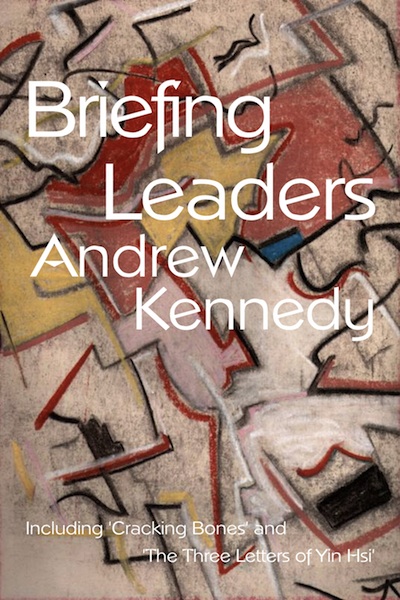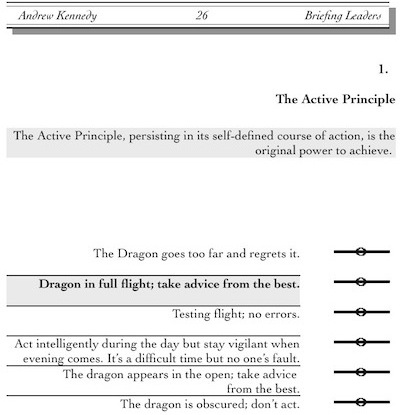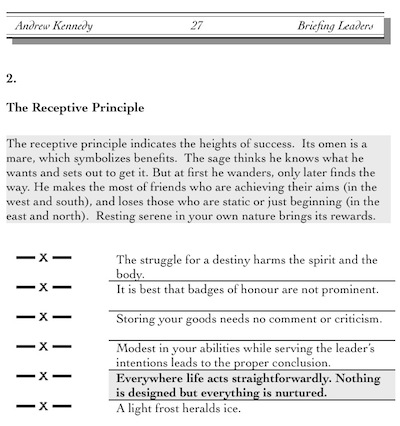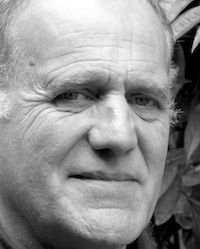

ISBN 9780954483135 Gravity Publishing, UK;
Published:
2006; trade paper; 152mm x 228mm; 174 pages;
subject: Oriental Philosphy, Religion, Divination;
general readership.
Section 1 - Cracking bones
Taking a fresh look at the ancient Chinese oracle of the divination, the author revises the hexagram meaning and the text of the moving lines by considering the hexagrams as pairs encompassing a whole, and by considering each moving line's relative rarity of being cast.
He examines the two popular methods of consulting the oracle, using coins and the yarrow stalks, and explains the great differences in frequencies between the two (see Wikipedia article). He considers the standard explanation of the probabilities of the yarrow stalk method is wrong because it includes the odds of throwing a zero which is not allowed for in the method. He then recalculates the true probabilities for each hexagram and their moving lines and from this is able to reconsider the meaning of each moving line from its frequency.
Thus each page has the meaning of the hexagram followed by the moving lines laid out so they can be compared directly with the hexagrams pair. The 64 hexagrams are followed by the author's commentaries on the rarities embodied in each.
Section 2 - The three letters of Yin Hsi
Inspired by the legend of Lao Tzu's passing from the world, the author has constructed a scenario of the last three days of the sage. Lao Tzu has been exiled by the court and Yin Hsi is the border post commander who has to see the sentence carried out. Yin Hsi, to whom Lao Tzu delivered his address (in legend), is an aging commander of a frontier outpost mixed up in bandit intrigue formented by his cousin, the regional governor.
The first letter
During his last meal at the post, Lao Tzu talks to Yin Hsi and his men about his Daoism. Yin Hsi writes a report to his superiors about the conduct of the exile. In this first 'letter', the author has re-translated and re-arranged the traditional order of the chapters of Lao Tzu's book, the Dao De Jing, the only words we have of the sage, to create a flowing discourse interspersed with questions from the soldier audience.
The second letter
Yin Hsi writes to his fiancée about his strange dissatisfactions of his life and his curioisty about the exile.
The third letter
Yin Hsi is an old man, a farmer, who has been asked to write down what he knows about the last days of the exile, the day he escorted the exile over the frontier but stayed with him through kidnapping by bandits and their eventual separation.
The moving lines and the probabilities of
the Hexagrams
"...It is worth reflecting upon the fact that for each hexagram, all the various combinations of moving lines lead to all the other hexagrams (26 = 64). Which is to say, in theory, the moving lines can take you from any hexagram to any other. The odds of producing any given line in the YSM are not equal. The makers of the oracle thought it much more likely that yang would change to yin than the other way around. A moving yang line, for example, is a little more than four times as likely to occur than a moving yin. This is hardly surprising given the nature of the yang principle. Yin is the substrate to events, and the nourishing base to which things eventually return. Thus, yang more readily turns to yin than the reverse. The relative rarity of the moving yin line makes its occurrence all the more important in a hexagram, even more urgent. Therefore we should pay close attention to the translations of the moving yin line texts and how they relate to the general scheme.
With the various probabilities of producing an individual line we can find the likely odds of casting a hexagram. Now odds are always rather hard to talk about, so I will talk in frequencies and relate them to the process of casting a hexagram once a day for 11 years (roughly equivalent to casting the total number (4,096) of possible readings). For example, in the yarrow stalk method (YSM), the most frequent plain hexagram in the oracle is hexagram number 2, made up of 6 static yin lines. You should expect to cast this between 32 and 33 times in the eleven years, or about three times a year. The hexagram least likely to occur is this same hexagram made up of all moving yin lines. You might expect to get this one (casting the oracle once a day) 7 times in a million years1! Indeed this is not surprising. The yin principle is, by its nature, passive, yielding and accepting. To have a situation where all 6 yin lines were changing, moving, developing, would suggest that something really extraordinary was going on. The first Hexagram, on the other hand, contains all yang lines. Casting all these lines moving would happen much more frequently; between 3 and 4 times in a hundred years..."
from The Hexagrams


"...It is worth reflecting upon the fact that for each hexagram, all the various combinations of moving lines lead to all the other hexagrams (26 = 64). Which is to say, in theory, the moving lines can take you from any hexagram to any other. The odds of producing any given line in the YSM are not equal. The makers of the oracle thought it much more likely that yang would change to yin than the other way around. A moving yang line, for example, is a little more than four times as likely to occur than a moving yin. This is hardly surprising given the nature of the yang principle. Yin is the substrate to events, and the nourishing base to which things eventually return. Thus, yang more readily turns to yin than the reverse. The relative rarity of the moving yin line makes its occurrence all the more important in a hexagram, even more urgent. Therefore we should pay close attention to the translations of the moving yin line texts and how they relate to the general scheme.
With the various probabilities of producing an individual line we can find the likely odds of casting a hexagram. Now odds are always rather hard to talk about, so I will talk in frequencies and relate them to the process of casting a hexagram once a day for 11 years (roughly equivalent to casting the total number (4,096) of possible readings). For example, in the yarrow stalk method (YSM), the most frequent plain hexagram in the oracle is hexagram number 2, made up of 6 static yin lines. You should expect to cast this between 32 and 33 times in the eleven years, or about three times a year. The hexagram least likely to occur is this same hexagram made up of all moving yin lines. You might expect to get this one (casting the oracle once a day) 7 times in a million years1! Indeed this is not surprising. The yin principle is, by its nature, passive, yielding and accepting. To have a situation where all 6 yin lines were changing, moving, developing, would suggest that something really extraordinary was going on. The first Hexagram, on the other hand, contains all yang lines. Casting all these lines moving would happen much more frequently; between 3 and 4 times in a hundred years..."
from The Hexagrams


from The first letter
"...The steward was standing in the doorway with more flasks of wine, so I ordered it to be served. The old man was drinking heartily from his cup. The weather was changing from the east and the lamps were flickering hard. In the light and shadow, it seemed our guest had a very young face on his wiry body. I could not decide if his look of amusement hid mischief. I thought it best to lead the conversation away from dangerous topics of dukes and ritual, and, I confess to you, cousin, I would have liked to see our guest a little less amused.
I asked him if he could explain his notion of the Tao more simply for my benefit since I was not as well informed as the company. He half turned in his seat to look at me. “The Tao?” he said. “These men could tell you.”
There was an embarrassed silence. And so he began, conversationally, but in a tone that at first did not invite interruptions. “Very well. (25) Let us consider, even before the Earth came to be resting in the arms of Heaven there was something embracing the Heavens. At rest and everywhere complete, it did not change. We can call it the world’s mother, though if it has a name, I do not know it. I call its principles the Tao. If you press me to describe it, I will give it only the properties of extension, since it operates right here and at the furthest place possible.
“This Tao then, is more extensive than the energies of the Heavens and the material of the Earth and the power of a ruler. These four express an important relationship. Man’s home is the Earth; the Earth’s home is the Heavens; the Heavens’ home is the Tao. The Tao’s home is its own nature.,,"
from The second letter
"...In accord with my yearning for idiocies, I have made all the sacrifices. I have used up all my monthly allowances on incense and flowers. I have spoken to the ghosts of the past and my own poor ancestors. I have inhaled the fragrance of jasmine and drunk the waters of thyme, and consulted the Changes. The new priest (even older than the last) came from the village, on the Duke’s order, to discuss the spring festival. He inspected the mound and threw offerings to the four corners. He produced his oracle and found a neutral future for the post. He then did one for me, the Commander of the post. He laid it out slowly and laboriously. The previous priest thought the Changes less effective than the cracking of bones, or the taking of a cup or two of wine facing the setting sun..."
from The third letter
"...On the morning of the old man’s departure I took myself off to hunt before dawn. The exile was required to leave unattended according to the letter of the sentence of the court. He was no longer a guest. He no longer required the forms of honour.
I went up into the woods above the pass and waited for the small caravan that had camped by the fort to hurry on to south. Spring had arrived and the sun was getting heavy with warmth. I saw the old man coming along much later, not riding, but driving his old ox. He was tireless with the goad, and the ox just a little less determined to resist. I came up to him and dismounted. He hardly glanced at me.
“More spying, Yin Hsi?”
“You did not remember me,” I said.
“I do well enough. A serious student and able soldier who, in his flat middle years, had the misfortune to fall in love with the much younger daughter of his general, and who now finds a promising career suddenly curtailed at a frontier posting where he is forgotten. Yes, I remember you, Yin Hsi. You handled yourself well at the post. Stuffy, certainly, but courteous. Incidentally, you are breaking the court’s edict by talking to me.”
“I suppose I could arrest myself.”
The old man said nothing. At length I tried to tease talk from him. “So you don’t think much of me. Well, you said that the best of the ancients were never thought much of.”
“Dont be arrogant.”
Silence. I let the reins drop - my horse never needed leading, it always followed - and walked beside our exile for a while. The old man whacked the ox and the ox groaned.
“I would leave that animal to itself. It will wander back eventually.”
“It would learn nothing by doing that.”
“It has no need of new learning.”
He dug his heel into the earth and pointed, “Which is moving, us or the path?” I did not reply, so he replied for me. “The Tao is in motion. Our learning must follow it.”
“I believe you said that your way could not be understood by travelling.”
“I am not travelling. I stay still, the world moves around me.” He smiled and looked round. “Flexibility is a decision made in here,” he tapped his head with the end of his stick. “Flexibility puts you to rest. The acrobat on a pole is not rigid. He looks still because his body is continually moving, accepting.”
“So how will a voyage make the ox understand new things?”
“All I am doing is making the beast go on. What he makes of the journey is up to him. The important thing is his decision to go on. And that’s what I am helping him with.”
“Where will you go?” I asked him after a while. He pointed with his stick up the path.
“More spying, Yin Hsi?”
“I have done what the courts demanded.”
“Don’t get huffy.” He whacked the ox and then pointed to it with his stick. “This is you.”
There was a long pause. I broke it by admitting, “Your ideas don’t make much sense to me.”
“They should. You are a soldier after all. You could have asked more questions the other night when I was talking.”
“It was the men who wanted clarifications. I did not want to interfere.”
“Always the captain eh?”
“I look after them.”
“You are arrogant and it doesn’t suit you. Your men are no fools. They have your number. They would rather deal with you than have some young, ambitious and mean-spirited captain foisted upon them.”
“They are obedient because they know I have the ear of the general.”
“You don’t even have the ear of the general’s daughter.”
He observed me absorbing the blow. I let the bruise fade before replying, “I have been courteous. You have not been ridiculed. We have given you no reason to be ashamed of your exile. Why are you so hostile?”
He whacked the ox again. “This is you,” he said.

Andrew Kennedy is an independent researcher into consciousness
and the philosophy of science, the founder of the Chronolith Project
and originator of the Chronolith experiment (to which the Cosmology of
People refers). He studied Chemistry at Edinburgh University and later
studied Chinese, Daoism and Daoist medicine, translated two Chinese
philosophy classics and wrote an original tract on the evolution of
human personality types, published in 2009 (Essential Personalities),
and currently writes about the prospects of interplanetary travel.
He also designed games and held a patent in a switching device. He is a Fellow of the BIS and a member of the Society for Social and Conceptual Issues in Astrobiology (SSoCIA).
He also designed games and held a patent in a switching device. He is a Fellow of the BIS and a member of the Society for Social and Conceptual Issues in Astrobiology (SSoCIA).
©2020
The Cosmology of People
